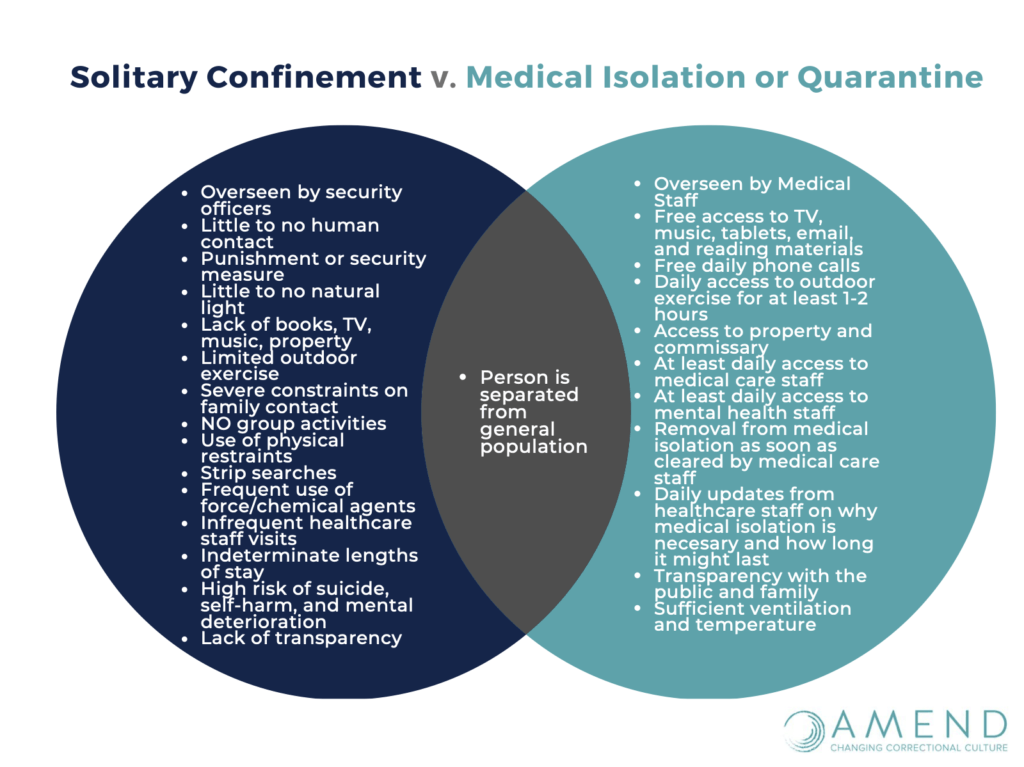COVID and Prisons - Solitary Confinement Vs. Medical Isolation
Making the distinction between punitive solitary confinement and medical isolation

As COVID rates start to rise again due to the BA.5 variant, mitigating the spread in prisons is essential to prevent wide-scale outbreaks in correctional facilities. The millions of people incarcerated in the U.S. are particularly vulnerable to infection, illness, and death from COVID-19, due to high rates of underlying medical conditions coupled with confinement in crowded and often unsanitary conditions with limited access to personal hygiene products.
Public health experts, policymakers, advocates and community leaders continue to call for the swift release of as many persons as possible from correctional facilities to slow the spread of the virus among incarcerated people and the correctional workforces also at risk from COVID-19 outbreaks. However, the number of people released to date remains insufficient to mitigate these risks, and millions of people will remain in custody as COVID-19 continues to spread.
However, using isolation as a tactic in prisons to mitigate the spread comes with nuanced complexity. Placing people in solitary confinement (punitive isolation) will worsen the COVID-19 crisis because fear of being placed in solitary will deter people from reporting symptoms. Additionally, preemptive lockdowns can result in failure to detect symptomatic people and cause undue stress, exacerbating resistance to the virus.
During COVID-19 waves, medical isolation - a very distinctive difference from solitary confinement as noted by the infographic above - should be used only as medically necessary, and these medical isolation procedures should result in living conditions clearly distinctive from those conditions found in solitary confinement. Research shows that keeping people socially isolated in a closed cell without a meaningful opportunity to communicate with family, friends, and loved ones or to participate in exercise, educational, and rehabilitative programming causes immense and irreparable psychological harm. That psychological harm, in both the short and long-term, inevitably has an impact on resilience and physical health, leaving isolated prisoners even more susceptible to COVID in an already high-risk scenario.
AMEND is a public health and human rights focused program that works in prisons and jails to reduce the debilitating health effects of these facilities on residents and staff alike, and you can visit their webpage here.










